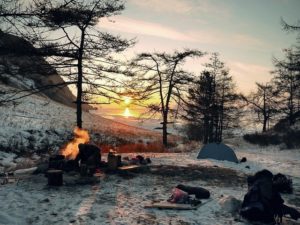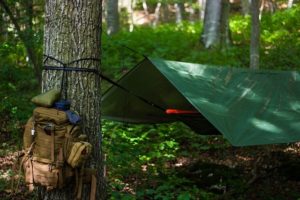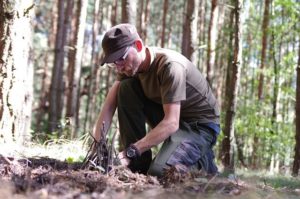Lighting fires, building weapons, building shelters, testing knives, sleeping in tents, riding hammocks, eating hot in the bush … who does not like to do all this! Escape your routine for a few days and explore a nearby forest. You will be amazed at yourself! Here are 5 Reasons you should learn survival techniques:
Reason # 5: Personal Challenges
Learning survival techniques is challenging. No one ever said it was easy. Survival skills need practice and determination. Perfecting skills like lighting a fire can be frustrating and take hours of practice. However, the reward of learning all these techniques is that someday they can save your life. This personal challenge is not only an immense sense of accomplishment but also a deep sense of peace and self-confidence.
Reason # 4: Mother Nature is unforgiving
The best we can do is prepared to deal with the aftermath. Surviving the fury of Mother Nature is just the first step. Mitigating the chaos that comes next is when your survival skills – shelter, water, fire and food – are really put to the test.
Reason # 3: Everything man-made can fail (and will fail)
Planes crash, dams explode, nuclear power plants merge, gas pipelines explode, power grids fail … and the list goes on and on. Survival techniques prepare us for when the time of inevitability arrives when everything man-made on which we depend fails. Knowing does not take place, your knowledge will always go with you no matter where you are or where you are going. Your knowledge does not need an electrical source or a mobile phone. They do not depend on gasoline or batteries. They are there for when you need them regardless of the circumstances.
Reason # 2: Invest in yourself
Learning survival techniques is an investment of time, and often money. But more importantly, it is an investment in yourself. You are your most valuable resource. Don’t underestimate the strength in you. You are unique and incredible. Take the plunge and spend a little time and a little money learning survival techniques that can change your life. Knowledge is power.
Reason # 1: Sooner or later you will need survival techniques
FEMA (Federal Emergency Management Agency, United States) began declaring large-scale disasters in 1953. That year they declared 13 disasters. In 2011 they declared 99. Statistically, major disasters are increasing in frequency and violence every year. Terrible things happen to good people. Every day there is someone who suddenly finds himself in a survival scenario where he must trust his knowledge and resources to survive. Plane accidents, cars without gasoline, devastating fires, fierce hurricanes, collapsed bridges … people who are forced to survive after the consequences of some fatality. We live in world madness, and you must be prepared for what happens. Thinking that “it will never happen to me” is not an intelligent thought.…


